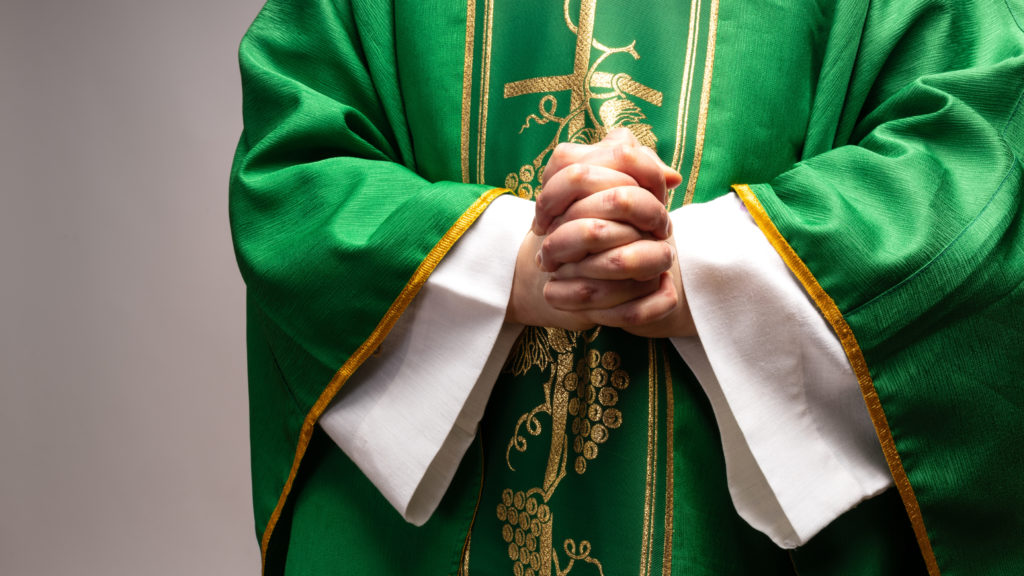The Diocese of Stockton has issued a warning about a pair of imposters posing as Catholic clergymen in the city of Modesto and charging high fees for blessings and sacraments.
The diocese said that two unidentified men are falsely using the names of actual clergymen from Mexico, namely Archbishop Raúl Gómez González of Toluca and Father José Adán González Estrada, a priest from the same archdiocese.
The imposters are charging high fees for sacramental blessings and for “conducting unauthorized celebrations” of sacraments like baptism, confirmation, and first Communion, the diocese said in its Friday warning.
Diocesan officials worked with the Archdiocese of Toluca in Mexico to verify the deception. Modesto is located 90 miles north of Fresno in California’s Central Valley.
The imposters are also teaching classes and issuing certificates for a fee, the diocese said. The exact details of those classes and certificates are unclear, but Erin Haight, a spokeswoman for the Stockton Diocese, told CNA Monday that photos of the certificates include the words “confirmation” and “Communion.”
The diocese also said that the imposters have demanded birth certificates for individuals participating in the sacraments, “raising concerns about human trafficking and identity theft.”
Additionally, the fraudsters have engaged in intimidation tactics when their identity or authority has been questioned, the diocese said, often resorting to legal threats against individuals.
The diocese has been in touch with individuals who may have been victimized by the incident, but they wish to remain anonymous, Haight said.
Modesto police have been notified of the deception but the diocese said it has been advised that only victims of the fraud can file criminal complaints.
CNA reached out to the Modesto Police Department for comment Monday but did not immediately receive a response.
The diocese is strongly encouraging any victims of the fraud to contact the police.
“It’s imperative to note that the police do not inquire about the caller’s immigration status; their primary concern is combatting criminal activities,” the diocese’s statement said.
Additionally, the diocese said that “with few exceptions, Catholic sacraments are typically administered within Catholic churches.”
“Celebrations of baptism, confirmation, and first Communion in outdoor locations like parks are not aligned with established Catholic practices,” the statement said.
Haight told CNA that the diocese is aware of only two imposters but is actively monitoring the situation.
She also said that the diocese doesn’t know whether any of the baptisms were valid or if real Communion hosts were used but said that “these are clearly ‘wolves in sheep’s clothing’ and they have not been operating in good faith thus far.”
The real identities of the men remain unknown, she added.
The surrounding dioceses have been made aware of the scam but the Stockton Diocese hasn’t received any reports of similar fraudulence, Haight said. She added that the diocese would stay in communication with neighboring dioceses on the situation.
The first alerts of the scam came to the diocese through “the proactive efforts of our dedicated community members and parishioners,” Haight said.
“Their vigilance and commitment to the well-being of their neighbors played a crucial role in bringing this matter to our attention,” she added.
“We extend our heartfelt kudos and gratitude to those who promptly reported the suspicious activity, allowing us to take swift and appropriate action,” she said.
An earlier warning
Earlier this year, another warning was released by the diocese alerting the faithful about a former Stockton priest who was dismissed from the clerical state celebrating Masses in private homes.
That former priest, Leo Suarez, was dismissed from the clerical state in 2016 after being twice credibly accused of sexually abusing a minor. He self-reported at least one of the abuses to the diocese in 2009. A diocesan document shows that he was credibly accused in 2014 as well.
The statement said at that time that the faithful were not advised to participate in any ministry run by Suarez “because it ruptures their communion with the Catholic Church and may, in some circumstances, result in the invalid administration of the sacrament.
“We have an obligation to educate our parishioners, and in no way would we want them to fall victim to those seeking to take advantage of them and their faith,” Haight told CNA at the time.
“As a diocese, we must protect the administration of the sacraments and our faithful,” she said.

